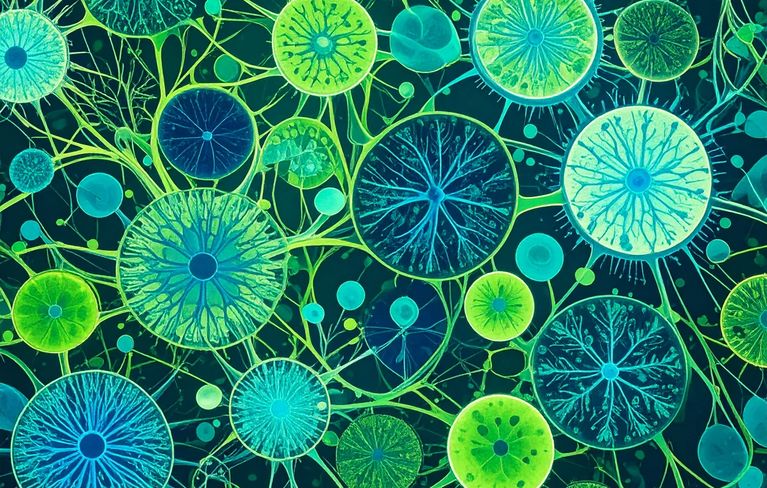
Automated generation of infection-compatible human organoids
Organoids offer a powerful model system to study human biology in vitro. They are particularly valuable in infection research, where they offer a biologically relevant environment to study pathogen entry, replication, tissue-specific responses, and therapeutic effects under near-physiological conditions. Unlike conventional monolayer cultures, organoids preserve cellular complexity and polarity, making them well suited to investigate host–pathogen interactions in a controlled and human-relevant context.
To support reproducible and scalable organoid production, we have implemented an automated platform for long-term culture and high-resolution monitoring. Feeding and passaging decisions are guided by AI-based image analysis, enabling reproducible conditions for downstream infection studies.
Throughout the workflow, a robotic arm transfers culture plates within a closed environment, maintaining sterility and synchronised timing.
By automating both organoid cultivation and monitoring, the platform reduces variability, increases throughput, and improves traceability. It provides a robust infrastructure for generating infection-ready organoids at scale and allows to separate the complexity of infection assays from the logistical challenges of manual organoid handling.